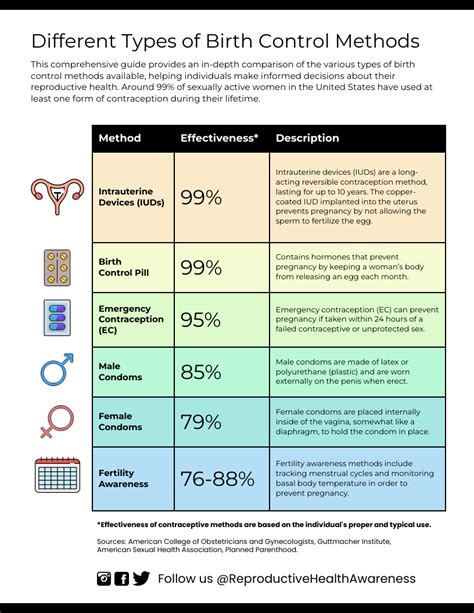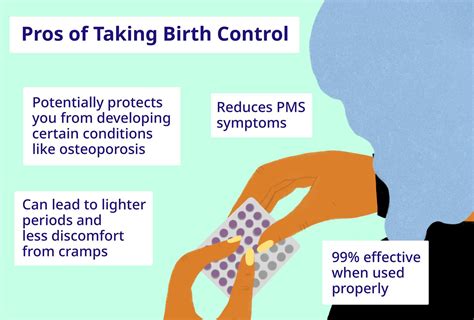Intro
Access to birth control is a fundamental aspect of reproductive health, allowing individuals to plan their families and make informed decisions about their bodies. The importance of birth control cannot be overstated, as it has a significant impact on the health, well-being, and economic stability of individuals and communities. With the numerous options available, understanding how to obtain birth control can seem daunting, but it is a crucial step in taking control of one's reproductive health.
The ability to access birth control is not only a matter of personal choice but also a critical component of public health. By preventing unintended pregnancies, birth control helps reduce the risk of maternal and infant mortality, promotes healthier birth spacing, and supports the economic empowerment of women. Furthermore, access to birth control is linked to improved educational and career outcomes, as individuals are better able to plan their futures without the burden of unintended pregnancies.
As the world continues to evolve, so do the methods and means of obtaining birth control. From traditional hormonal pills to more modern implantable devices, the options for contraception are vast and varied. Understanding these options and how to access them is essential for making informed decisions about reproductive health. Whether through healthcare providers, online platforms, or community clinics, there are numerous pathways to obtaining birth control, each with its own set of considerations and requirements.
Understanding Birth Control Options

Before diving into how to obtain birth control, it's crucial to understand the various options available. Birth control methods can be broadly categorized into hormonal and non-hormonal options, each with its own mechanism of action and potential side effects. Hormonal methods, such as the pill, patch, and ring, work by introducing hormones into the body to prevent ovulation. Non-hormonal methods, including copper IUDs and barrier methods like condoms, prevent pregnancy through physical or chemical means.
Types of Birth Control
- **Hormonal Methods:** Include the pill, patch, ring, implant, and injectable contraceptives. These methods are highly effective but may have hormonal side effects. - **Non-Hormonal Methods:** Include copper IUDs, condoms, diaphragms, and spermicides. These methods offer an alternative for those who cannot or prefer not to use hormonal contraception. - **Permanent Methods:** Such as tubal ligation and vasectomy, are options for individuals who have completed their families and wish to prevent future pregnancies permanently.Accessing Birth Control

Accessing birth control involves several steps and considerations. The first step is often consulting with a healthcare provider to discuss options and determine the most suitable method based on health, lifestyle, and personal preferences. Healthcare providers can offer guidance, answer questions, and in many cases, prescribe or administer the chosen method.
For those with health insurance, many birth control methods are covered under the Affordable Care Act, making access more affordable. However, for individuals without insurance or those seeking confidential care, community clinics and online platforms can provide accessible pathways to obtaining birth control.
Steps to Access Birth Control
1. **Consult a Healthcare Provider:** Discuss health history, lifestyle, and preferences to find the best birth control option. 2. **Explore Insurance Coverage:** Understand what birth control methods are covered under the current health insurance plan. 3. **Visit Community Clinics:** For affordable and confidential care, especially for those without insurance. 4. **Utilize Online Platforms:** Some platforms offer telehealth consultations and mail-order birth control, increasing accessibility.Benefits of Birth Control

Beyond preventing unintended pregnancies, birth control offers a range of health benefits. For many women, hormonal birth control can regulate menstrual cycles, reduce the severity of menstrual cramps, and decrease the risk of certain health conditions such as endometrial and ovarian cancer.
Additionally, birth control can have significant economic and social benefits. By enabling individuals to plan their families, birth control supports educational and career aspirations, contributing to greater economic stability and independence. This, in turn, can have a positive impact on communities, as empowered individuals are better positioned to contribute to society in meaningful ways.
Health Benefits of Birth Control
- **Regulation of Menstrual Cycles:** Reducing irregularities and improving predictability. - **Decreased Risk of Certain Cancers:** Such as endometrial and ovarian cancer. - **Reduction in Menstrual Cramps and Heavy Bleeding:** Improving quality of life for many women.Challenges in Accessing Birth Control

Despite the importance and benefits of birth control, many individuals face challenges in accessing these services. Barriers can include lack of insurance coverage, high out-of-pocket costs, restrictive laws and policies, and societal stigma surrounding contraception.
For marginalized communities, these barriers can be even more pronounced, exacerbating existing health disparities. Addressing these challenges requires a multifaceted approach, including policy changes, increased funding for reproductive health services, and public education campaigns to reduce stigma and improve awareness.
Addressing Barriers to Birth Control
- **Policy Reforms:** Advocating for laws and policies that protect and expand access to birth control. - **Financial Assistance Programs:** Offering subsidies or free services to those who cannot afford birth control. - **Public Awareness Campaigns:** Educating the public about the importance and benefits of birth control, reducing stigma.Future of Birth Control

The future of birth control is marked by innovation and expansion of options. Research into new methods, such as birth control pills for men and non-hormonal contraceptives, promises to increase the repertoire of choices available to individuals. Additionally, advancements in telehealth and online platforms are making birth control more accessible than ever, especially for those in remote or underserved areas.
As society continues to evolve, so too will the landscape of birth control. With a focus on accessibility, affordability, and inclusivity, the future holds promise for a world where every individual has the ability to make informed choices about their reproductive health.
Emerging Trends in Birth Control
- **New Contraceptive Methods:** Such as male birth control pills and non-hormonal options. - **Telehealth Services:** Increasing access to birth control through online consultations and prescriptions. - **Advocacy for Reproductive Rights:** Continuing efforts to protect and expand access to birth control worldwide.Conclusion and Next Steps

In conclusion, obtaining birth control is a critical aspect of reproductive health, offering numerous benefits for individuals and communities. By understanding the available options, accessing care through healthcare providers or community clinics, and addressing the challenges that exist, individuals can take control of their reproductive health. As we look to the future, it is essential to continue advocating for increased access, affordability, and innovation in birth control, ensuring that every person has the opportunity to make informed choices about their body and their future.
We invite you to share your thoughts and experiences with birth control in the comments below. If you found this article informative, please consider sharing it with others who may benefit from this information. Together, we can work towards a future where access to birth control is universal, and every individual has the autonomy to make choices about their reproductive health.
What are the most effective methods of birth control?
+The most effective methods of birth control include implantable devices, IUDs, and certain types of hormonal contraceptives, which can have effectiveness rates of over 99% when used correctly.
Can I get birth control without seeing a doctor?
+Yes, in some cases, you can get birth control without seeing a doctor. Many pharmacies and online platforms offer over-the-counter birth control or telehealth consultations for prescription birth control.
Is birth control covered by insurance?
+Under the Affordable Care Act, most health insurance plans are required to cover birth control without copays or coinsurance. However, coverage can vary depending on the specific plan and type of birth control.
